
Reviews of Environmental Contamination and Toxicology
Scope & Guideline
Unraveling the complexities of contaminants and their impacts.
Introduction
Aims and Scopes
- Pollutant Characterization and Behavior:
Research that explores the nature, sources, and behavior of various environmental pollutants, including heavy metals, microplastics, and pharmaceuticals. - Remediation Technologies:
Focus on innovative and sustainable approaches to remediate contaminated environments, including advanced treatment technologies and bioremediation strategies. - Ecotoxicology Assessments:
Studies that assess the ecological and health risks posed by contaminants, including their bioaccumulation, toxicity mechanisms, and effects on biodiversity. - Nanotechnology Applications:
Investigations into the use of nanomaterials for environmental remediation and their potential risks, particularly regarding engineered nanoparticles. - Impact of Climate Change on Contaminants:
Research examining how climate change influences the behavior and effects of environmental contaminants, especially in aquatic ecosystems.
Trending and Emerging
- Microplastics Research:
An increasing number of publications focus on microplastics, their sources, ecological impacts, and human health risks, reflecting growing global concern over plastic pollution. - Sustainable Remediation Techniques:
A trend towards exploring sustainable and innovative remediation technologies, including green chemistry and bio-based solutions, to address contamination challenges. - Health Impacts of Environmental Contaminants:
Emerging studies that link environmental contaminants to health outcomes, including neurodegenerative diseases and antibiotic resistance, are gaining prominence. - Nanotechnology in Environmental Applications:
Research into the application of nanotechnology for pollutant removal and treatment is on the rise, emphasizing both its potential benefits and associated risks. - Climate Change and Contaminant Dynamics:
An increasing focus on how climate change affects the behavior, transport, and toxicity of environmental pollutants, especially in aquatic systems.
Declining or Waning
- Traditional Chemical Assessments:
There is a noticeable decline in studies focused solely on conventional chemical assessments of pollutants, as the field shifts towards integrating nanotechnology and bioremediation approaches. - Historical Pollution Studies:
Research that primarily examines historical pollution sources and impacts is becoming less prevalent, with a shift towards contemporary issues and emerging contaminants. - Generalized Risk Assessments:
Broad risk assessment studies that lack specificity on particular pollutants or ecosystems seem to be decreasing, as more targeted and detailed assessments gain importance.
Similar Journals

Journal of Environmental Science and Health Part C-Toxicology and Carcinogenesis
Diving Deep into Toxicology and Cancer ResearchThe Journal of Environmental Science and Health Part C-Toxicology and Carcinogenesis is a vital publication in the fields of environmental science, toxicology, and cancer research, published by Taylor & Francis Inc. With an ISSN of 2689-6583 and E-ISSN 2689-6591, this journal provides a platform for peer-reviewed research that explores the intersection of environmental factors and health outcomes, particularly focusing on toxicological and carcinogenic impacts. Though it does not currently offer Open Access, it remains a significant contributor to academia with its current ranking in the Q4 category for Cancer Research and Q3 in Health, Toxicology and Mutagenesis. The journal has converged from 2020 to 2024 and aims to disseminate pioneering studies that inform public health policies and foster a deeper understanding of environmental toxins. Aspiring researchers, professionals, and students will find this journal to be an essential resource for the latest findings and discussions within these critical fields.
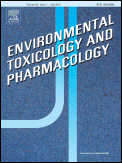
Environmental Toxicology and Pharmacology
Illuminating the science behind pollutants and health.Environmental Toxicology and Pharmacology, published by Elsevier, is a leading journal dedicated to advancing our understanding of the effects of environmental pollutants on biological systems. With an ISSN of 1382-6689 and an E-ISSN of 1872-7077, this journal covers a wide range of studies related to toxicology, pharmacology, and environmental health. The journal is classified as Q2 in key categories such as Health, Toxicology and Mutagenesis and Medicine (miscellaneous), and sits impressively in Q1 for Toxicology, reflecting its strong impact in the field. As of 2023, it ranks #30 out of 133 in Toxicology and #40 out of 148 in Health, indicating its high relevance and contribution to research. While the journal is not currently open access, it remains a pivotal resource for researchers, professionals, and students seeking to explore the intricacies of environmental health effects. Its commitment to publishing high-quality peer-reviewed research positions it as a crucial platform for scientific dialogue and discovery.

JOURNAL OF ENVIRONMENTAL BIOLOGY
Illuminating the Path to Environmental AwarenessJOURNAL OF ENVIRONMENTAL BIOLOGY, a prominent publication in the field of environmental science, is published by Triveni Enterprises in India. Since its inception in 1988, this journal has served as a vital platform for disseminating research related to environmental biology, encompassing areas such as environmental engineering, health impacts of toxic substances, and the mechanisms of mutagenesis. With an increasing impact in the scientific community, the journal is categorized in the third quartile (Q3) in Environmental Engineering and fourth quartiles (Q4) in Health, Toxicology, and Mutagenesis according to 2023 rankings. Researchers, professionals, and students will find value in its robust collection of original research articles, review papers, and case studies that address pressing environmental issues and promote sustainable practices. Although it is not an open-access journal, the comprehensive scope of the content published from 1988 to 2024 ensures that critical insights remain accessible to those dedicated to advancing the knowledge in environmental sciences.

ENVIRONMENTAL SCIENCE & TECHNOLOGY
Driving interdisciplinary dialogue for pressing environmental challenges.ENVIRONMENTAL SCIENCE & TECHNOLOGY, published by the American Chemical Society, is a premier journal dedicated to the rapid dissemination of innovative and impactful research in the fields of environmental science and technology. With an ISSN of 0013-936X and an E-ISSN of 1520-5851, this journal boasts a remarkable Q1 ranking across multiple categories including Chemistry (Miscellaneous), Environmental Chemistry, and Medicine (Miscellaneous) for 2023, reflecting its crucial role in advancing interdisciplinary approaches to pressing environmental issues. Notably, it holds prestigious Scopus rankings, being ranked #26 in General Chemistry and #10 in Environmental Chemistry, placing it in the top portions of its respective categories with unmatched visibility at the 93rd percentile. Spanning a publication history from 1967 to 2024, the journal serves as a vital resource for researchers, professionals, and students aiming to contribute to sustainable solutions and scientific advancements. By prioritizing rigor and relevance, ENVIRONMENTAL SCIENCE & TECHNOLOGY fosters academic dialogue and innovation within these crucial fields, making it an essential read for anyone invested in environmental progress.
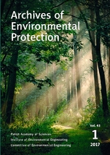
Archives of Environmental Protection
Fostering Research for a Greener TomorrowArchives of Environmental Protection, published by the Polish Academy of Sciences, is a pivotal journal in the field of Environmental Science. With an ISSN of 2083-4772 and E-ISSN of 2083-4810, this journal serves as a critical platform for disseminating innovative research and comprehensive reviews that address the complexities surrounding environmental issues. As of 2023, it holds a respectable Q3 ranking in Environmental Science, reflecting its relevance and contribution to the academic community, indicated by a Scopus rank of 124 out of 233 in the General Environmental Science category. Although it operates without Open Access, the journal's consistent publication from 2007 to 2024 emphasizes its commitment to advancing knowledge in diverse areas of environmental protection. Researchers, professionals, and students are encouraged to engage deeply with the wealth of insights offered through the rigorous peer-reviewed articles presented in this journal, which strive to foster sustainable practices and environmental stewardship.
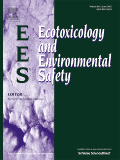
ECOTOXICOLOGY AND ENVIRONMENTAL SAFETY
Unraveling the complexities of environmental safety and toxicology.ECOTOXICOLOGY AND ENVIRONMENTAL SAFETY, published by Academic Press Inc. Elsevier Science, stands as a premier journal in the field of environmental science, specializing in the intricate relationships between toxic substances and ecological systems. With a commendable impact factor and recognized as a Q1 journal in various categories including Health, Toxicology and Mutagenesis, and Public Health, it consistently ranks among the top publications in Scopus, placing it in the 96th percentile for Medicine and Public Health. Established in 1977, this journal addresses critical issues related to environmental safety and pollution, making it an essential resource for researchers, professionals, and students alike. Although it does not offer an open access option, the journal’s commitment to publishing rigorous and impactful research makes it a vital platform for advancing the understanding of ecotoxicological risk assessments and environmental protection strategies. For those dedicated to the intersection of science and public health, ECOTOXICOLOGY AND ENVIRONMENTAL SAFETY serves as a beacon of knowledge and innovative research.
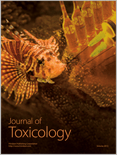
Journal of Toxicology
Empowering global research in toxicological science.Journal of Toxicology, published by HINDAWI LTD, stands as a pivotal open-access journal in the fields of toxicology and pharmacology since its inception in 2009. With an ISSN of 1687-8191 and an E-ISSN of 1687-8205, this journal is dedicated to disseminating high-quality research that critically examines the effects of toxic substances on living organisms. Located in Egypt and operating from their London office, it aims to provide an extensive platform for researchers worldwide to share findings that can inform better practices in safety and regulation. As of 2023, it has achieved significant recognition, holding a Q3 ranking in both the pharmacology and toxicology categories, and is indexed in Scopus with noteworthy percentile rankings (Toxicology: 57th and Pharmacology: 55th). With a focus on innovative studies and emerging areas such as environmental toxicology, biomarker research, and therapeutic interventions, the Journal of Toxicology invites both experienced researchers and students to contribute, thereby enhancing the breadth and depth of toxicological knowledge for the global scientific community.
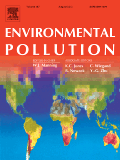
ENVIRONMENTAL POLLUTION
Unveiling the science behind environmental contaminants.Environmental Pollution, published by Elsevier Science Ltd, stands at the forefront of research related to environmental contaminants and their effects on health and ecosystems. With an impressive impact factor reflected in its Q1 rankings across various categories including Health, Toxicology, and Pollution, this journal is a pivotal resource for academics and professionals in the fields of environmental science and toxicology. The journal, established in 1973, continues to disseminate high-quality articles that explore the implications of pollution and advance knowledge on toxicological impacts and mitigation strategies. Although it is not an open-access journal, it offers robust visibility within the scientific community, ensuring vital research reaches those who need it most. Researchers, students, and professionals dedicated to understanding and addressing the challenges of environmental pollution will find Environmental Pollution to be an indispensable platform for their work, guiding the ongoing dialogue on sustainable practices and public health protection.
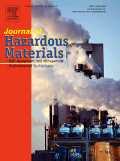
JOURNAL OF HAZARDOUS MATERIALS
Unraveling the Complexities of Pollution and ToxicityJOURNAL OF HAZARDOUS MATERIALS, published by Elsevier, stands as a leading academic platform in the fields of Environmental Chemistry, Environmental Engineering, and Pollution Studies. With a solid impact captured through its Q1 ranking across multiple relevant categories, this journal is essential for researchers focusing on the management and mitigation of hazardous materials. Originating in 1975 and continuing to present insight until 2024, it provides valuable peer-reviewed content that informs best practices within health, toxicology, mutagenesis, and waste management. Furthermore, its impressive Scopus rankings highlight its influence, securing a position in the top percentile among global publications. While access to the journal is not open access, its rigorous approach to impactful research makes it indispensable for academics, industry professionals, and students seeking to deepen their understanding and innovate in this critical area of study.

JOURNAL OF SOILS AND SEDIMENTS
Exploring the Foundations of Earth SciencesJOURNAL OF SOILS AND SEDIMENTS, published by SPRINGER HEIDELBERG, stands as a premier interdisciplinary platform dedicated to advancing the understanding of soil and sediment dynamics within the broader context of Earth sciences. With an impressive impact factor and a Q1 ranking in both Earth-Surface Processes and Stratigraphy, this journal not only reflects the high quality of research but also contributes significantly to the dialogue amongst researchers, professionals, and students in the field. The journal encompasses a wide spectrum of topics from sedimentology to soil science, making it essential reading for those involved in environmental management, agriculture, and geology. Access options are available to ensure that cutting-edge research is accessible to a global audience, reflecting the journal's commitment to fostering collaboration and innovation. As we converge towards 2024, JOURNAL OF SOILS AND SEDIMENTS aims to continue its role in shaping scientific inquiry and policy formulation concerning the vital roles of soils and sediments in ecological and geological systems.